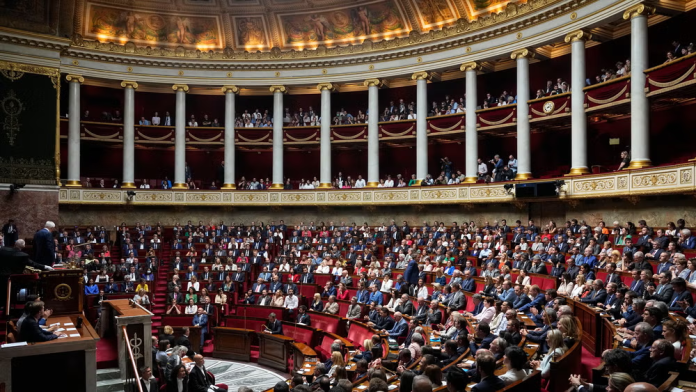France’s newly elected National Assembly, the lower house of parliament, meets on Thursday while the country is still trying to form a government after early elections failed to produce a majority, according to RFI.
As required by the French constitution, the new parliament holds its first session on the second Thursday after the elections are over, which in this case is 18 July. The new assembly will be officially inaugurated in a session chaired by its senior member, 81-year-old José Gonzalez of the National Rally party.
Lawmakers will elect the president of the assembly, the equivalent of the speaker of the house, who is tasked with setting the agenda and conducting debates. The vote to choose the speaker is ‘the first occasion to put the unity – or otherwise – of the various political groups to a full-scale test,’ says political consultant Bernard Sananès.
Nevertheless, potential speakers must receive the support of an absolute majority of MPs in the first two rounds of the secret ballot. Otherwise, the winner is the one who gets the most votes in the third round.
No leader has yet emerged for the post, which has so far been held by Yaël Braun-Pivet of the presidential centrist coalition. She is expected to run to retain the post, but as Macron’s camp is now the second largest bloc in the new parliament, she is far from guaranteeing votes.
Everyone will be counting their troops and things may look a bit clearer, let’s hope, by the end of the week.
Other positions
The Speaker’s chair is not the only one waiting to be filled. The Speaker of the Assembly shares leadership responsibilities with six vice-presidents, 12 secretaries and three financial administrators, all of whom are due to be elected on 19 July.
Each parliamentary group has the right to propose candidates for various positions, as well as for the chairmanships of eight standing parliamentary committees, ranging from finance to foreign affairs, defence to culture. These positions will be filled on 20 July.
Left-wing leaders are calling for the national-oriented to be stripped of any positions of power in parliament, while some centrists say they will seek to block candidates from either the National Rally and France Unbowed.
The position of first vice-president and at least one position of financial administrator traditionally goes to opposition members, while the rules explicitly require the opposition to chair the finance committee. Meanwhile, committee seats are allocated proportionally between groups.
The constitution requires parliament to sit for 15 days, with the first session lasting until 2 August. After that, it will not meet until early October, raising the possibility that France could remain in limbo all summer.
The French public isn’t used to waiting so long to get a government. Their votes sent a message that there are urgent matters to deal with, things they’re angry about. And so if we were to find ourselves not naming a government until the end of the summer as some suggest, even if you can understand it given the Olympics, French people may get increasingly impatient.
